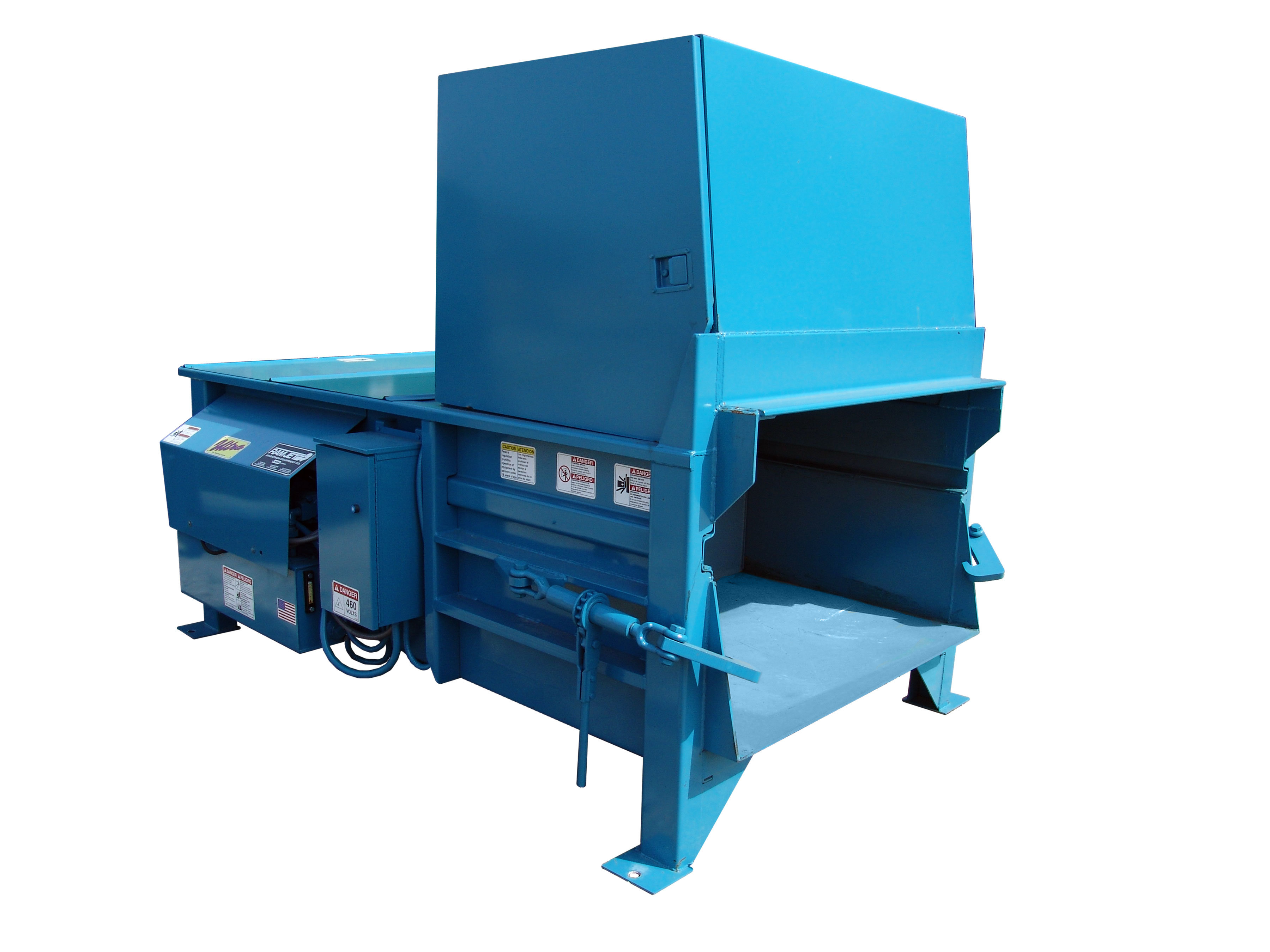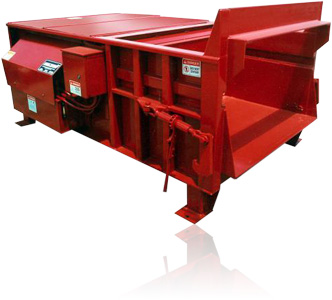The Role of Waste Equipment in Promoting Sustainable Waste Disposal Practices
Waste Equipment offers a fundamental function ahead of time lasting waste disposal techniques. It encompasses a variety of devices designed to boost the performance of waste segregation, collection, and handling. By using Equipment such as compactors, shredders, and reusing bins, neighborhoods can greatly decrease their reliance on landfills. Nonetheless, the impact of these devices prolongs beyond performance. Recognizing their more comprehensive ramifications discloses insights right into how they form ecological responsibility and area involvement. What exists in advance in this developing landscape?
Comprehending Waste Equipment and Its Significance
Waste Equipment plays a necessary function in reliable waste monitoring systems. It includes a variety of devices and machinery made to deal with, procedure, and dispose of waste products efficiently. Understanding waste Equipment is important for organizations, districts, and organizations intending to execute sustainable waste disposal techniques - Commercial garbage compaction equipment. Effectively operating waste Equipment not only enhances the collection and transportation of waste yet additionally minimizes environmental impact by ensuring that waste is taken care of sensibly
The relevance of waste Equipment includes boosting reusing efforts, decreasing garbage dump usage, and promoting resource recovery. Equipment such as shredders, balers, and compactors assist in the handling of waste, making it much easier to separate recyclable products from general refuse. In addition, advancements in waste modern technology add to the growth of more eco-friendly remedies, therefore strengthening the commitment to sustainability. On the whole, waste Equipment functions as a keystone for efficient waste monitoring, fostering a cleaner and healthier atmosphere for future generations.
Types of Waste Equipment for Effective Waste Management
Efficient waste administration relies on various kinds of Equipment created to deal with particular disposal demands. Among these, compactors play a vital function by minimizing the volume of waste, making transportation a lot more reliable. Shredders are crucial for breaking down huge things, promoting easier handling and disposal. Additionally, balers press recyclable materials into convenient bundles, enhancing storage and transportation.
Containers and bins are basic for gathering waste at the resource, guaranteeing appropriate segregation and minimizing contamination. For unsafe materials, specific Equipment, such as drum crushers and leak-proof containers, is necessary to guarantee safety and security and compliance with laws.
Ultimately, transport vehicles furnished with hydraulic systems enhance the performance of waste collection and disposal processes. Each kind of waste Equipment adds to a structured waste management system, advertising sustainability and minimizing environmental effect through efficient disposal techniques.
The Role of Reusing Bins in Sustainable Practices
Reusing bins play an essential function in promoting sustainable methods by assisting in effective waste splitting up. By offering marked containers for recyclable materials, they urge individuals to take on green behaviors. This simple application considerably adds to lowering garbage dump waste and enhancing recycling rates.
Effective Waste Splitting Up
Appropriate waste separation plays an important role in promoting sustainable practices, and reusing containers act as a significant tool in this process. By clearly differentiating in between recyclables, compostables, and basic waste, these containers promote effective sorting, decreasing contamination and making best use of recycling effectiveness. Their tactical positioning in private and public rooms motivates individuals to take part in accountable waste disposal. The usage of color-coded bins assists to simplify the splitting up process, making it instinctive for individuals. This business strategy not only boosts reusing prices yet additionally increases recognition concerning the importance of waste management. Basically, reusing bins are fundamental elements that sustain reliable waste separation, eventually adding to a much more sustainable setting and decreasing the general stress on garbage dumps.
Urging Eco-Friendly Actions
Individuals may be inclined to ignore their influence on the atmosphere, the presence of reusing containers greatly affects eco-friendly actions. These containers offer as aesthetic suggestions, encouraging people to different recyclables from basic waste. Their calculated placement in public areas promotes accessibility, making it easier for individuals to take on lasting methods. Studies show that when recycling bins are offered, recycling prices enhance substantially, mirroring a straight relationship between facilities and behavior. On top of that, vibrant signs on these bins educates customers concerning what products can be recycled, lowering contamination prices. By cultivating a culture of recycling, these containers not just facilitate appropriate waste management yet likewise influence a cumulative duty toward environmental stewardship, eventually adding to a more sustainable future.
Composting Equipments: Turning Waste Into Resources
Composting systems function as a critical device in changing organic waste into useful sources, using many environmental advantages. Different types of composting Equipment accommodate various requirements, making the process easily accessible to both neighborhoods and individuals. Understanding the composting process is important for maximizing its efficiency and promoting lasting waste management techniques.
Benefits of Composting Equipments
Several neighborhoods are increasingly identifying the various advantages of composting systems, which transform natural waste right into valuable resources. These systems successfully lower land fill waste, therefore lowering greenhouse gas emissions and saving natural deposits. By transforming food scraps, yard waste, and other natural materials into nutrient-rich compost, they boost dirt wellness and fertility, promoting lasting agriculture techniques. Additionally, composting aids to keep moisture in the soil, minimizing the requirement for chemical fertilizers and watering. It promotes biodiversity by providing a habitat for valuable microorganisms and insects. In addition, composting enlightens people about ecological stewardship, encouraging a culture of sustainability. Generally, composting systems play a vital function in creating a round economic climate, where waste is decreased, and resources are reused.
Kinds Of Composting Equipment
A range of composting Equipment is offered to help with the reliable processing of organic waste right into useful compost. These systems vary from basic backyard compost containers to sophisticated industrial composters. For home usage, tumblers and static bins are preferred, enabling for manageable aeration and mixing. Aerated fixed heaps utilize blowers to improve air flow, considerably quickening disintegration. Large-scale procedures may use in-vessel composters, which regulate temperature level and humidity for suitable composting problems. Worm composters, or vermicomposting systems, harness the natural gastrointestinal procedures of worms to damage down raw material. Additionally, shredders and chippers help prepare materials by minimizing size, promoting faster break down. Each kind of Equipment offers certain needs, making it possible for diverse composting methods that add to sustainable waste monitoring.
Composting Refine Explained
The composting process transforms organic waste right into nutrient-rich resources through a series of chemical and organic responses. Microorganisms such as germs and fungi break down organic products, including food scraps and yard waste. This decay creates heat, facilitating additional microbial activity and speeding up the failure procedure. As the garden compost develops, the temperature reduces, enabling beneficial organisms to flourish. The visibility of oxygen is important, promoting aerobic problems that boost microbial effectiveness. Throughout this procedure, carbon-to-nitrogen ratios need to be preserved to optimize decay. Completion outcome is humus, a dark, crunchy useful site compound rich in nutrients, which can be used to improve soil, assistance plant growth, and add to lasting farming techniques.
Innovative Technologies in Waste Collection and Disposal
As cities grapple with enhancing waste volumes and environmental worries, ingenious modern technologies in waste collection and disposal become necessary options. Smart waste containers equipped with sensors track fill degrees, maximizing collection paths and reducing gas consumption. These bins can additionally communicate with waste monitoring systems, decreasing and helping with prompt pickups overflow concerns. Additionally, autonomous cars, consisting of drones and robot systems, are being deployed to boost operational effectiveness in waste collection.
Improvements in sorting innovations, such as expert system and artificial intelligence, make it possible for a lot more efficient recycling processes by swiftly identifying and dividing materials. Waste-to-energy technologies transform natural waste into sustainable energy, reducing landfill dependence and contributing to power sustainability. These technologies not only simplify waste monitoring practices but also promote a circular economic climate, consequently fostering a lasting approach to waste disposal. Eventually, the assimilation of these modern technologies plays a crucial duty in attending to metropolitan waste challenges and enhancing ecological stewardship.
Neighborhood Involvement Through Waste Equipment
While reliable waste management relies heavily on advanced innovations, community engagement through waste Equipment plays a crucial function in fostering lasting techniques (Commercial garbage compaction equipment). Waste Equipment, such as reusing containers and composting terminals, serves not only as useful tools yet also as stimulants for neighborhood awareness and participation. By putting these resources in easily accessible areas, municipalities encourage people to take an energetic role in waste reduction and recycling efforts
Educational campaigns coming with waste Equipment installments can better improve neighborhood involvement, directing residents on correct disposal approaches and the advantages of lasting techniques. In addition, neighborhood occasions that use waste Equipment, such as clean-up drives and reusing challenges, motivate collective activity and build a feeling of responsibility among community members.

The Future of Waste Administration and Lasting Solutions
Developments in innovation and shifts in societal attitudes are shaping the future of waste monitoring and sustainable options. Smart waste monitoring systems, making use of IoT gadgets, are enabling real-time monitoring of waste levels, optimizing collection paths, and decreasing carbon footprints. These innovations not just boost efficiency but additionally advertise recycling and composting campaigns by providing data-driven understandings.
Moreover, the increase of round economy practices motivates business to reconsider item layout, concentrating on reusability and recyclability. This change cultivates a culture of sustainability, where consumers are significantly demanding environmentally friendly products.
Moreover, community participation in waste management is coming to be significantly essential, with curricula equipping individuals to take obligation for their waste. As federal governments worldwide carry out stricter laws on garbage disposal, companies and neighborhoods are triggered to embrace sustainable techniques. With each other, these aspects pave the means for see here now a future where waste is reduced, and sources are conserved, making certain a healthier earth.
Often Asked Concerns

Exactly How Can Companies Profit Financially From Spending in Waste Equipment?
Spending in waste Equipment can result in substantial monetary advantages for businesses. By enhancing effectiveness, lowering disposal expenses, and boosting recycling capacities, business can reduce functional expenses and possibly check this produce revenue with recouped products.
What Regulations Govern using Waste Equipment in Various Areas?
Different policies control waste Equipment usage, varying by region. These include ecological standards, safety methods, and operational standards, targeted at making certain conformity, advertising public health, and reducing ecological influence related to waste administration techniques.
Exactly how Do I Pick the Right Waste Equipment for My Demands?
Picking the ideal waste Equipment demands examining particular waste types, quantity, and disposal methods. Looking into readily available choices, consulting with experts, and thinking about regulative compliance will assist in making a notified choice tailored to individual needs.
What Are the Environmental Effects of Inefficient Waste Equipment?
Inefficient waste Equipment can cause enhanced emissions, higher power usage, and higher garbage dump overflow. It typically leads to inappropriate waste partition, worsening air pollution and negatively impacting communities, which inevitably prevents sustainable waste monitoring efforts.
Exactly How Can Waste Equipment Be Kept for Optimal Performance?
Waste Equipment can be kept for peak performance through regular evaluations, prompt fixings, correct cleaning, and adherence to maker standards. This ensures efficiency, extends Equipment life-span, and lessens ecological effect during waste management processes.
Waste Equipment plays a vital role in effective waste administration systems. Recognizing waste Equipment is crucial for businesses, organizations, and municipalities aiming to implement lasting waste disposal techniques. While reliable waste monitoring counts heavily on sophisticated modern technologies, community engagement through waste Equipment plays an essential duty in promoting sustainable practices. Neighborhood participation in waste management is ending up being significantly vital, with instructional programs equipping individuals to take obligation for their waste. Picking the ideal waste Equipment demands examining particular waste kinds, quantity, and disposal methods.